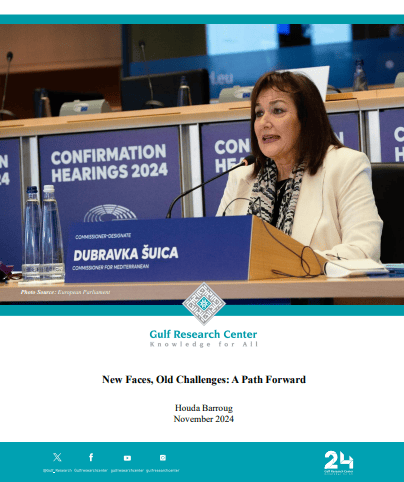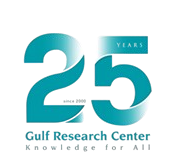
European Parliament's hearings for the 26 nominated commissioners took place from the 4th until the 12th of November in Brussels. These hearings are a critical process in shaping the future of the European institutional apparatus. These three-hour hearings address a variety of critical subjects to the parliament’s functionality, including digital transformation, climate change, the EU's global role, and economic recovery following COVID-19. The candidates were rigorously questioned on their competence, independence, and adherence to European principles. Notably, during his hearing, Raffaele Fitto of Italy was asked about his association with Meloni's far-right party, while Hungary's Olivér Várhelyi received queries regarding his alleged strong links to Viktor Orban and his performance in the previous mandate.
The hearings highlighted the delicate balance between national interests and EU-wide ambitions, with some contenders less able to articulate a coherent European vision than others. The process also highlighted the European Parliament's expanding involvement in crafting EU policy, with members of the Parliament (MEPs) having the authority to reject candidates and impose portfolio adjustments. While some experts caution that the hearings tend to be overly politicized, others see this as a significant step toward enhanced transparency and democratization of EU decision-making. The conclusion of these hearings greatly affects the direction of EU policy in the next few years, as the whole Commission needs Parliament's agreement before being formally nominated by the European Council.
Nearly all of the portfolios have an indirect impact on the EU-GCC partnership: for example, during his hearing, Maroš Šefčovič, the designated Commissioner for Trade and Economic Security and Interinstitutional Relations and Transparency, emphasized that economic security may result in a more strategic examination of trade agreements, potentially impacting energy trade with GCC nations. Glenn Micallef, Commissioner for Intergenerational Fairness, Youth, Culture and Sport, stressed youth participation and cultural interchange which in turn has the potential to influence the cultural and people-to-people components of EU-GCC cooperation. Christophe Hansen, nominated for the portfolio of Agriculture and Food Security, spoke in his hearing on balancing environmental and economic sustainability which could potentially align with GCC countries’ diversification efforts and investment in sustainable food production systems.
More directly relevant for the status of ties with the GCC would be Kaja Kallas, as new High Representative for Foreign Affairs and Security Policy, replacing Josep Borrell. Her emphasis on enhancing the EU's global standing and preserving its economic and geopolitical security could be seen as a way to foster a more strategic approach to alliances with the GCC. She made a strong case for broader international cooperation and this could benefit communication and coordination with the GCC on common concerns such as economic diversification, energy security, and regional stability. Jozef Síkela the commissioner-designate for International Partnerships can leverage GCC countries’ rising position in Africa to better collaborate with Gulf and African states on sustainable development throughout the continent.
The most important portfolio in the framework of EU-GCC partnership is that of Dubravka Šuica, designate commissioner for the Mediterranean. Šuica stressed the importance of the Mediterranean region for Europe, underlining concerns such as Russia and China's expanding influence, energy security, environmental protection, and migration management. She advocated a “New Mediterranean Pact” as one of her goals, aiming to develop "partnerships of equals" and emphasized the need for a new Middle East strategy supporting a two-state solution and Palestinian Authority reforms.
MEPs discussed Šuica's plans to strengthen the EU's engagement in the Middle East and Southern Neighborhood, including pursuing strategic partnership agreements like those with Egypt and Tunisia. Despite recent challenges, Šuica remains committed to financially supporting the Palestinian Authority and UNRWA. She also touched on preventing illegal migration, enforcing human rights provisions in migration treaties, and dealing with Turkey's provocations in the Eastern Mediterranean.
The potential implications of a Šuica appointment include:
Geopolitical realignment: Šuica's focus on a "New Pact for the Mediterranean" represents the much-needed shift in the EU's approach to regional alliances. This could feed into a more complex power triangle involving the EU, the GCC, and other Mediterranean states. For example, the EU's engagement, combined with its growing recognition of the GCC as an important partner will help establish a competitive partnership in which the EU and GCC compete while also identifying areas of mutual benefit.
The implications of this power recalibration go beyond traditional boundaries. On may witness the formation of new multilateral forusm or initiatives that bring together EU, GCC, and Meditterranean countries to address specific challenges such as climate change or technology transfer. With China as an undeniably powerful and influential actor on the African continent, this trilateral power partnership will allow for a more inter-institutional collaboration between the GCC and the EU (notably the Kallas and Síkela’s portfolios.)
Energy security and transition: Šuica is looking to shape the EU's Mediterranean policy at a crucial time for global energy transitions. The EU's push for green energy, paired with the GCC's diversification ambitions, is critical to the reinvention of energy alliances. It can herald the establishment of integrated energy ecosystems across the EU, Mediterranean, and GCC. As a result, one option is joint investments in large-scale renewable energy projects, such as solar farms in North Africa or wind farms in the Mediterranean, with potential energy flows to both Europe and the Gulf. With a transregional green energy grid as a potential outcome, energy sufficiency will become one of the overarching themes in the EU-GCC partnership framework.
Migration management: Šuica's focus on migration management offers a chance for a paradigm shift in how the issue is addressed in both blocs. Instead of viewing migration solely as a security issue, there is potential for a more comprehensive, developmentoriented strategy. This might entail launching collaborative EU-GCC projects to address the core causes of migration in source countries, leveraging the EU's development skills with the GCC's regional influence and financial resources.
The birth of new migrant collaboration models that go beyond traditional aid and border control is critical. This could lead to circular migration schemes that promote talent transfer between the EU, GCC, and Mediterranean nations, for example, or cooperative vocational training programs in critical industries such as renewable energy or digital technology. Such efforts have the potential to turn migration from a source of controversy to a catalyst for economic progress and regional integration.
Economic partnerships: Šuica's mandate to promote strategic relationships in the Mediterranean extends beyond standard free trade agreements to include comprehensive economic integration. Sectors like green technology, digital services, and manufacturing will most likely witness unprecedented rise in value chains.
The creation of specialized economic zones or innovation hubs that combine the complementing strengths of the EU, Mediterranean, and GCC economies would be inevitable. For example, integrating EU technological experience, GCC funds, and Mediterranean human resources to establish centers of excellence in areas such as artificial intelligence, biotechnology, and sustainable agriculture could be further developed. Such projects could not only increase economic growth, but also strengthen people-to-people connections and cultural exchange, resulting in a more integrated region.
As the parliament prepares to decide on its new commissioners, the Mediterranean and GCC countries should brace for the outcomes. The implications of the hearings, and most importantly that of Dubravka Šuica, on the EU-GCC relationship are significant. As she is poised to “re-shape” the European bloc’s policy on its Southern Neighborhood, her mandate could set the stage for a more proactive EU approach to the GCC in addressing evolving global challenges.
*Houda Barroug is a Researcher at the Gulf Research Center (GRC)

